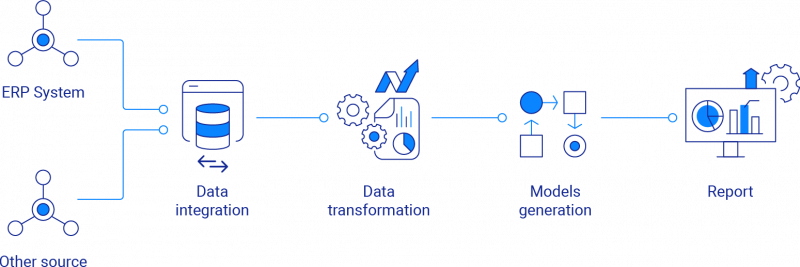Data quality
Part of the data loading process is Data Quality process, which ensures its quality. Many times, the human factor causes incorrect analyses, which entail wrong decisions. Analyses could include duplicate items, language errors, or simply missing data, etc.
Such inconsistencies and errors in the data are eliminated in the Data Quality process, via complete validation of the analysed data – which gives us greater certainty of data correctness. Usually, this involves sets of formal and business principles which describe the given processes occurring in a company.
